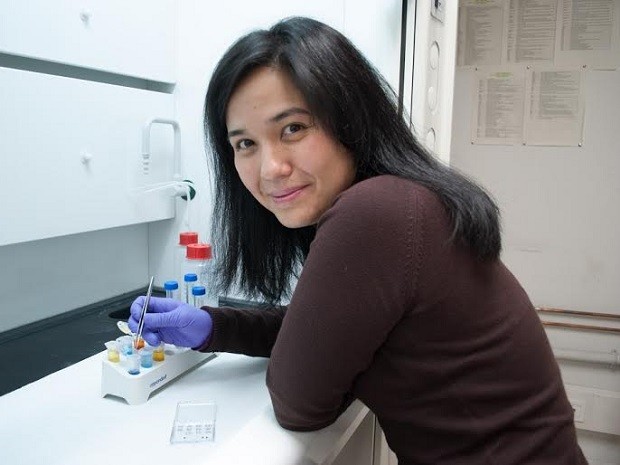
In most cases, the sooner a cancer is detected, the better are the chances of recovery. It is a challenge, however, to detect the disease before any symptoms show up, especially without a biopsy or other invasive procedures. However, a new technology was just developed by a Brazilian scientist at the Microelectronics Institute of Madrid, Priscila Kosaka that looks to change that.
Kosaka, who is a Chemistry PhD student, created an ultrasensitive sensor that detects the disease from a blood test, using a technique called biorecognition, which can also be used in the diagnosis of hepatitis and Alzheimer's disease. According to her, the sensor is innovative because it can detect a very small sample in the midst of thousands of cells, something that no other biomarker could do before.
It works somewhat like a mini trampoline with antibodies on its surface, and when they sense the presence of cancer cells in the blood sample, they react becoming heavier. The device also changes the color of the particles and makes it shinier, which makes it a whole lot easier to be recognized.
The device has an error rate of just two in every 10 thousand cases. Kosaka points out that the discovery is being tested for four years now, but still lacks full testing. Before reaching the market, there is still some work to do to try and reduce to the cost of manufacturing as at the moment the costs are not commercially viable. It is expected that this will only happen within ten years. But the idea is that the device will come out at an affordable cost and be used on check-up routine exams, thus exempting a biopsy procedure.


